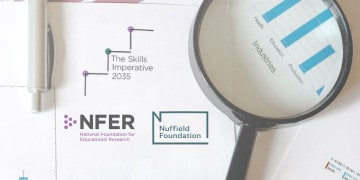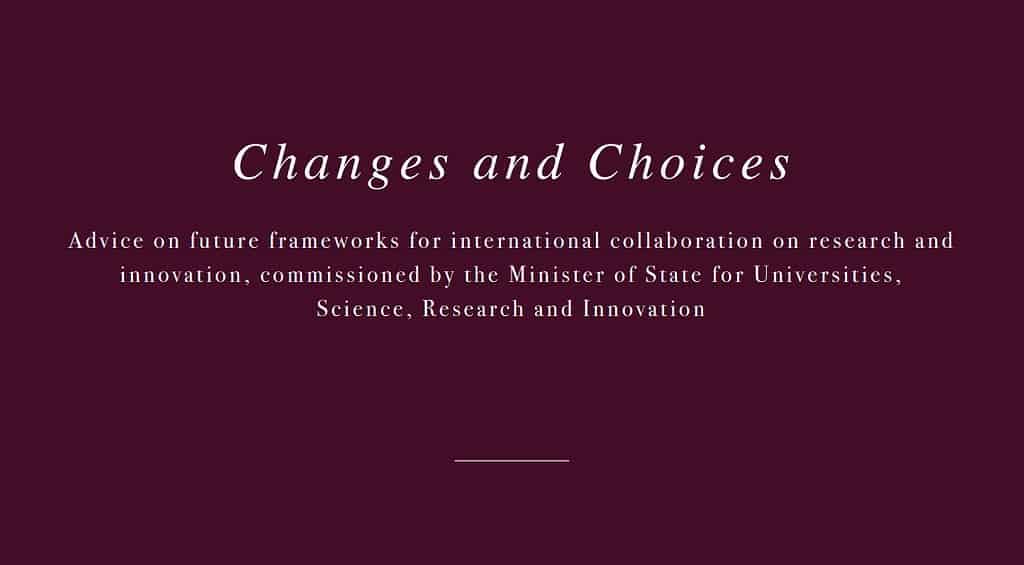Sir John Holman, senior education advisor to the Gatsby Foundation, outlines how ten key benchmarks can help schools achieve a higher standard of science education.
Good Practical Science: 10 new benchmarks
05 Oct 2017
In a nation already suffering a STEM skills shortage, the effective delivery of practical science education is as important as ever.
That’s why I was pleased to lead the Gatsby Foundation’s new report, Good Practical Science, providing benchmarks and recommendations to outline how all secondary schools in England can achieve world-class science education.
The report provides recommendations to help all secondary schools in England achieve world-class science education, even when facing tight budgets. The benchmarks include recommendations for schools, policymakers, Ofsted and teacher trainers.
To develop the benchmarks, our team gauged the status of practical science in more than 400 secondary schools across England. We also visited nations with world-leading standards of science education, including Finland, Germany and Singapore, to learn what was done differently internationally.
One of our key findings is that the UK is well-provisioned, in terms of facilities, to deliver practical science effectively. However, we found that practical science is being put at risk by the pressure on schools to perform in public examinations. When compared to other countries, the accountability system in England is the most intense, narrowing teachers’ choices and constraining practical science.
10 benchmarks for practical science education
The ten benchmarks for effective practical science education are identified as:
1. Planned practical science
2. Purposeful practical science
3. Expert teachers
4. Frequent and varied practical science
5. Laboratory facilities and equipment
6. Technical support
7. Real experiments, virtual enhancements
8. Investigative projects
9. A balanced approach to risk
10. Assessment fit for purpose
Meeting all the criteria for all the benchmarks presented by Good Practical Science will be demanding. Although schools on the whole are well-provided for, our school survey confirms that many schools in England are falling short of achieving world-class practical science according to these benchmarks.
Notably, the report concludes that most schools in England will struggle to achieve the recommended frequency for practical science, and this is particularly true for older students taking examined courses, where curriculum pressures often squeeze out time for experimentation.
However, I believe that the Good Practical Science report presents achievable goals to help schools on the journey to achieving world-class science education.
We cannot afford to ignore the benefits of high-quality practical science in schools. Experimentation gives science its identity and captures the imaginations of young people. This appeal is the reason many scientists, technicians and engineers chose their career path.
With this report, we hope to underline the importance of hands-on experimentation in the classroom, to ensure the excitement of new ideas is continuously developed for the next generation of STEM students and professionals.
Sir John Holman is Emeritus Professor of Chemistry at the University of York. He is education advisor to the Gatsby Foundation, President of the Royal Society of Chemistry (2016-2018), founding director of the National STEM Learning Centre and a former head teacher and science teacher.
A key ambition of the Gatsby Charitable Foundation is to strengthen intermediate science, technology, engineering and mathematics (STEM) skills within the UK workforce.
Related articles

The Physiological Society’s policy team on the health challenges facing older workers and the urgent need to develop a strategy to ensure older people are happy and healthy at work.

Jo Reynolds, Director of Science and Communities at the Royal Society of Chemistry, on the RSC’s new summary report looking to unlock the potential of deep tech SMEs.

Lisa Morrison Coulthard, Research Director at the National Foundation for Education Research, on the Nuffield Foundation funded five year research programme providing insights into the essential employment skills needed for the future workforce

Sir Adrian Smith, Institute Director and Chief Executive of The Alan Turing Institute, and Graeme Reid, Professor of Science and Research Policy at UCL, set out the findings from their new independent report on international partnership opportunities for UK research and innovation